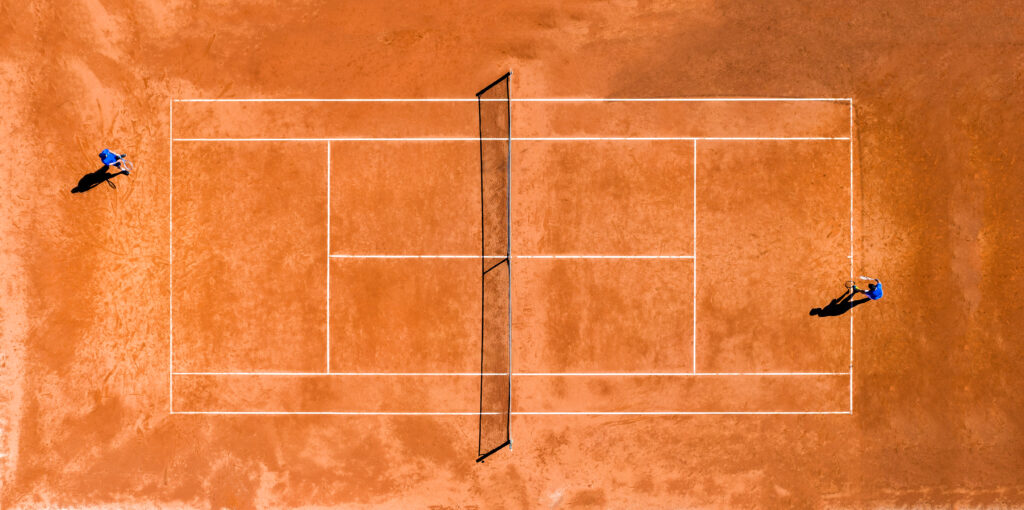When most people think about tennis, they think about skill: the serve, the forehand, the footwork.
But after a year of taking tennis seriously, I’ve realised something far more powerful than technique:
Discipline is the true driver of progress — in tennis, and in life.
I used to treat my time on court as separate from everything else. Now, I see how the habits I build through tennis — consistency, patience, focus — have quietly shaped how I show up everywhere else too.
This is how tennis taught me discipline, and how I’ve used those lessons to grow off the court as well.
Lesson 1: Showing Up Is the Hardest Part — and the Most Important
There are days when I don’t feel like training. I’m tired, sore, behind on other responsibilities. But the rule is simple:
You don’t wait for motivation. You show up because it’s the standard.
And over time, this mindset bled into everything:
- I started getting up earlier to study before work
- I finished tasks I would’ve previously put off
- I made plans and stuck to them — even when no one else was watching
🎾 The court taught me that success isn’t built on moods — it’s built on habits.
Lesson 2: Do the Small Things Right — Every Time
In tennis, skipping the warm-up leads to injury. Neglecting footwork leads to errors. Half-effort reps? They build bad habits.
So I stopped cutting corners. And once I held myself to that standard in training, I started applying it elsewhere:
- Keeping notes after meetings
- Proofreading emails before sending them
- Showing up five minutes early — because five minutes matters
Discipline lives in the details. Nail the small things, and the big things get easier.
Lesson 3: Keep Your Head When It Gets Tough
Matches aren’t won when everything’s going well. They’re won when:
- You’re down a break
- You’ve double faulted twice
- You feel the nerves creeping in
In those moments, discipline kicks in:
- Stick to the routine
- Play the next point
- Don’t spiral
And that mindset has helped me stay steady outside tennis too:
- When deadlines pile up
- When projects stall
- When motivation dips
Tennis taught me how to stay calm, trust the plan, and keep moving forward — even when I feel like quitting.

Lesson 4: Focus on the Process, Not Just the Outcome
At first, I only cared about winning. If I didn’t win the match, I felt like a failure.
But tennis quickly humbled me. You can play well and lose. You can play terribly and scrape a win. So I shifted my mindset:
The goal isn’t to win. The goal is to improve.
That change helped me:
- Set better goals in life (effort-based, not just results-based)
- Worry less about what others think
- Find more satisfaction in long-term growth
Discipline isn’t about being perfect — it’s about committing to the process.
Lesson 5: You Can Always Get Better — But Only If You’re Honest
After every match, I review:
- What I did well
- Where I lost focus
- What I need to work on
It’s not about beating myself up — it’s about owning the journey.
Now I do the same in other areas:
- Weekly self-checks in my journal
- Honest reflections on how I use my time
- Asking, “What could I do better next time?”
Discipline without self-reflection is just routine. Real progress needs honesty.
How I Stay Disciplined in Real Life (Inspired by the Court)
Here are a few routines I’ve built using the same structure I apply to tennis:
Morning Routine
- Wake up at the same time (even on weekends)
- Quick stretch, glass of water, write down today’s goals
- Visualise how I want to feel — calm, focused, ready
Work Routine
- Set 90-minute work blocks, then short breaks (like tennis sets!)
- Keep a notepad to track distractions and bring myself back
- Clear my desk — just like I tidy my gear post-match
Life Goals
- Treat goals like training plans: broken into drills, weeks, checkpoints
- Review progress every Sunday (just like post-match reflection)
- Stay flexible — but stay consistent
The trick? Don’t wait to feel ready. Start. Then build the feeling.
Final Thoughts: Discipline Is a Muscle — Tennis Helped Me Train It
After a year of serious tennis training, I’ve won matches and lost plenty. But the biggest thing I’ve gained?
I know how to keep going, even when it’s hard.
And that discipline? It’s shown up in my studies, my career, my relationships, and my mindset.
The court doesn’t just shape your game — it shapes your character.
So if you’re looking to get more consistent, more focused, and more grounded in your life goals… try training like you mean it. Whether you’re swinging a racquet or writing a report, the same rules apply.
Discipline is built one choice at a time.








